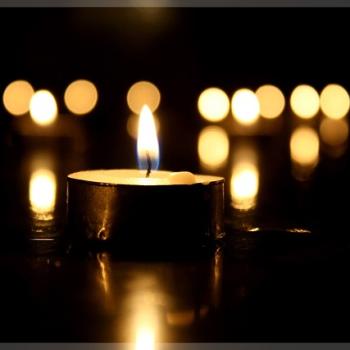
I couldn’t find the Works of Charles Dickens.
I have been trying to learn to read again, lately. Reading used to be my defining characteristic. I was the shy and lonely child who disappeared into books. Growing up in Columbus, I lived two blocks from the Whetstone branch library, and we went there almost daily. I’d get a stack of chapter books from the library and mow through them before it was time to go again. When I was ten, I puzzled through the un-annotated coffee table book of William Shakespeare’s plays, wondering what all those odd words meant. When I was twelve, I carried a gigantic unabridged Les Miserables with me wherever I went, all summer long, reading at picnics and by the pool. At sixteen I started taking college courses, and plowed my way through the Norton Anthologies of everything.
Books were involved in one of the first manifestations of the severe obsessive-compulsive disorder that wrecked my mins when I was eleven. I started hiding my copy of The Lord of the Rings from myself and only reading it twice a week, no matter how desperate I was to see what happened next, because I was afraid God would be jealous of how much I liked it. In those days, the subtype of obsessive-compulsive disorder labeled “Scrupulosity” wasn’t something secular psychologists talked about. My grim child psychiatrist was not a religious woman, hadn’t even read the Bible, never heard of the Charismatic Renewal, and didn’t understand my mother’s issues. I didn’t know how to tell her about The Lord of the Rings.
I graduated from Otterbein University with a BA in English and a creative writing concentration, but with enough credits in literature courses that I could have concentrated in literary studies.
And then, of course, I ruined my life.
I thought I was called by God to go to graduate school at Franciscan University to study philosophy and ethics. I had been told over and over that God always makes you do the hardest and most painful thing, rather than the things you like, so that you can make a sacrifice and offer it up. I gave up reading for pleasure, and read Aristotle and Thomas Aquinas instead, so that I could teach people the faith and be a good person. I gave up Columbus and ended up in Northern Appalachia. I found myself in the personality cult of Father Michael Scanlan, an even worse cell of the Charismatic Renewal than the one I’d grown up in, and began a severe struggle with misdiagnosed chronic illness. I found myself married with a baby, three-quarters of a useless master’s degree, a mountain of student debt, and no plan to get out of town. My strength was spent. I found it harder and harder to read all but the simplest books.
And then, of course, the events of the late 2010s and the early 2020s. That was when I began to discover that the Charismatic Renewal is a cult, or at least a network of personality cults, and the revelations about the people I’d revered as saints got worse and worse. That is when I found myself the victim of a severely mentally ill stalking neighbor, and and my hypervigilance and OCD reached a fever pitch. I couldn’t read a book any more than I could fly. I could barely scroll through a news article. I couldn’t even watch a television program longer than twenty minutes. If I tried to do anything that engaged my mind more than a little, I’d have a panic attack. I didn’t read a single book for almost two years.
But I’m getting better now.
The religious trauma has settled into something like a truce with the Catholic Church. I can usually go to Sunday Mass, if I sit in the foyer and excuse myself for a walk outside when it feels too dangerous. I can watch a television show or a movie again. I am beginning to un-learn my scrupulosity. My stalker went away to the hospice in 2022, and my panic attacks have been ebbing away ever since. And just last year, I started reading again. Adrienne wanted me to read Louis Sachar’s Holes, which they’d studied in English class at school, so I read it, and I liked it. I’ve been slowly picking away at books.
Right now, we have a funny bedtime ritual. Adrienne sits on my bed and reads a young adult high fantasy novel while I read a chapter of a Faulkner novel. I sometimes stop and read a particularly long and ponderous sentence from the text aloud, to make Adrienne laugh. Then I try and describe what the whole chapter was about. And then I google to find a summary, and see whether I understood it or not. I usually don’t.
This weekend, we found a bookcase on the corner of a street near my house, in a jumble of used furniture with “Free! Take All You Want!” on a hand-lettered sign next to a house college students rent. I carefully inspected it for bugs, and took it home. I dusted it off. And then I decided to fill it with my old books, which were stowed in the attic so I didn’t have to look at them.
The attic was stifling hot. Every surface was covered in dust. The ceiling light up there hasn’t worked in years, so I brought a flashlight, feeling like an explorer excavating a tomb. I was looking for my beautiful clothbound set of Charles Dickens novels with the H. K. Browne illustrations. Those were my favorite books of all before I ruined my life. But they were nowhere to be seen. I stayed up there as long as I could manage. I tripped over a suitcase containing Adrienne’s baby clothes and a box of old teddy bears. Finally, despairing, I shoved some books into a cardboard box and dragged them down to my room.
I found myself sitting in a pile of dusty tomes, running the vacuum cleaner hose over each in case of the mold spores. I set a collection of Rudyard Kipling stories and the big fat Folger’s Shakespeare on my new bookcase, feeling sad and foolish. I stacked that copy of Don Quixote I never read next to the single volume of The Norton Anthology of English Literature I’d found, shamefaced as if someone would point and laugh at me. I brushed cobwebs off of The Diary of Anne Frank, feeling as if I’d desecrated a relic. I tried to wipe off the dust jackets of a few coffee table art books I’d gotten from a library sale. One of them tore.
I felt exposed, humiliated, as if a real literature scholar would burst into my bedroom and taunt me for being a pathetic fake with only a bachelor’s degree and a terribly small library. And I missed my set of Charles Dickens.
I wondered if God Godself was laughing at me. Or, worse, if God was really the joyless boogieman from the Charismatic Renewal, and angry with me.
Maybe God was pleased when I stopped reading the books that I liked, and was going to punish me now that I was a traumatized former Charismatic, trying to stay even a little bit Catholic, trying to find a life that felt worth living, trying to steal my books back from Him.
I told myself again and again that I already knew a god so petty was not a god to whom I owed anything. The only God worth my time was the God Who created me on purpose, because He liked me, and wanted me to be happy. A God who creates a person to take joy in things and then insists they destroy their joy in order to follow Him is a tyrant god. A religion that demands you give up the harmless things that you like in favor of dour things you despise is a cult. The real God, the God of Justice, the only God worth my time, was nothing like that.
If I was really made in God’s image, then the harmless things I took joy in were not stumbling blocks to my salvation. They were things I was given to help point me towards God. All the havoc that Charismatic charlatans wreaked in my life was not of God, but of another spirit.
Adrienne found me sitting on the floor, sulking. We put the remaining books on the shelf together.
I promised to read a chapter of the young adult high fantasy novel she’d been enjoying, before I started on my Faulkner book again.
I’m going back upstairs to find my Dickens tomorrow. I also had an annotated Alice in Wonderland and just about everything Lucy Maude Montgomery ever wrote. They’re in there somewhere. I’m going to clean them all up and put them where I can read them.
Life hurts, but it’s getting much better.
Mary Pezzulo is the author of Meditations on the Way of the Cross, The Sorrows and Joys of Mary, and Stumbling into Grace: How We Meet God in Tiny Works of Mercy.












